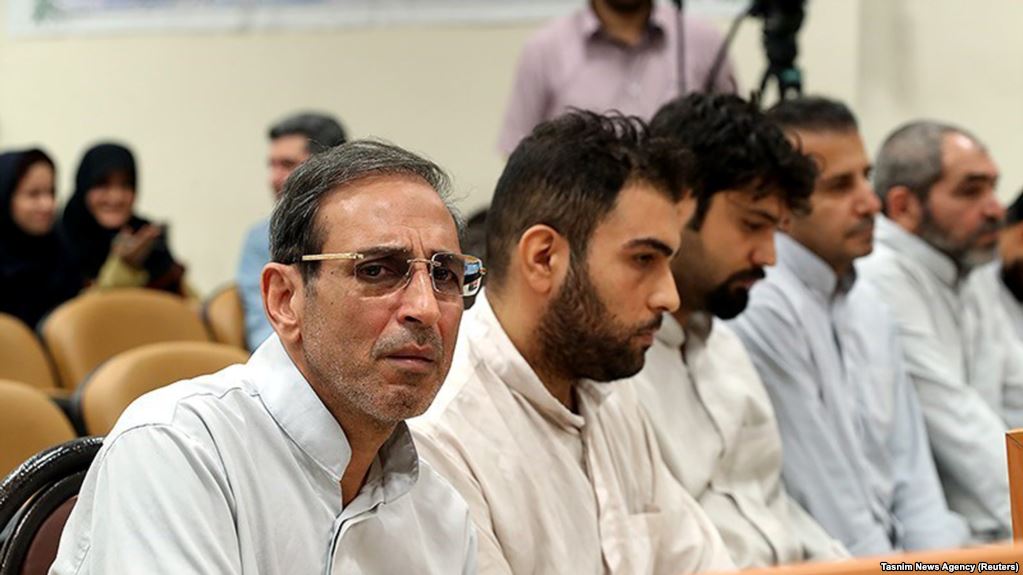Vahid Mazloumin (L), executed on November 14 for “economic crimes” in court in Tehran, September 8, 2018
Hoping to prevent another currency crisis amid its economic problems and US sanctions, Iran has executed two men convicted of illegal trading.
The two condemned were Vahid Mazloumin, labeled by the Tehran police chief as the “Sultan of Coins”, and his alleged accomplice Mohammad Ismail Qasemi. They were hanged early Wednesday following convictions in high-profile trials in late September for currency manipulation and for “spreading corruption on Earth”.
The Iranian rial had fallen 75% this year before a recent recovery. The drop — from an already historic low in January — has fed inflation, which has surged to 37% after the Rouhani Government brought it down to single digits in a five-year effort.
In August, the Supreme Leader authorized special Revolutionary Courts to hold public trials over “economic crimes”. Sentences may not be challenged, although death penalties can be appealed.
Iran Daily, October 1: 3 Sentenced to Death for “Economic Crimes”
At least seven death sentences have been delivered by the Courts.
Mazloumin was arrested in July for hoarding two tons of gold coins. His attorneys claimed that the Iranian Central Bank had not placed limits on the amount of gold that could be held.
The Tehran Prosecutor said
Thursday that Mazloumin’s “network was one of the most influential unlawful activists of the foreign-exchange and coin market.”
The status of a third defendant sentenced to death in the case, Hamid Bagheri-Dermani, is unclear. At least 32 other people were sentenced to prison terms.
The Iranian rial, which had fallen to almost 200,000:1 against the dollar this autumn, officially stands at 130,000:1 on Thursday morning. The Government has taken a series of steps to prop up the currency as comprehensive US sanctions were imposed on November 5.

